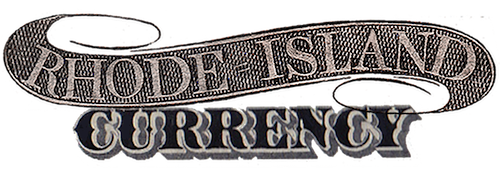Farmers Exchange Bank, Glocester
The Farmers Exchange Bank is famous for the being the first bank in the history of the United States to fail. Begun in 1804 in the village of Chepachet in Glocester, it issued far more currency than it could ever cover with assets. On March 24, 1809 it was closed, causing a panic at other banks and fomenting a general distrust of paper money. Jane Kamensky’s The Exchange Artist: A Tale of High-Flying Speculation and America’s First Banking Collapse, 2008, is an in-depth exploration of the events surrounding this financial fiasco.
An account from 1886 provides these details:
“In February, 1804, the Farmers’ Exchange Bank was chartered, to be located in the village of Chepachet, with a capital of $100,000. President, John Harris; cashier, Mowry Smith. Daniel Owen, Simon Smith, Timothy Wilmarth, James Aldrich, John Harris, John Wilkinson, Elisha Mathewson, Solomon Owen, Samuel Winsor, Daniel Smith, Simeon Smith, Mowry Smith and Daniel Tourtellot were appointed directors of said bank. Daniel Owen resigned in March, 1804, and William Rhodes was elected to fill his place. The books of the bank were kept in a confused state, according to the final report of the Assembly’s committee to examine the bank. The directors did not at any time have a proper knowledge of the management of the bank.
“In 1808 nearly all the directors sold out their shares. John Harris continued president, and in 1808 William Colvvell was appointed cashier; Elisha Fairbanks and Samuel Dexter were made directors. It was evident to men doing business with the bank that there was great mismanagement with some of the officers, and that the affairs of the bank needed to be examined. A bank business meeting was called, and the following new directors were appointed, viz.: Obadiah Brown, Seth Hunt, Jr., Mark Steere (son of Richard), Jesse Mowry and Samuel Fenner. They delivered the books to the General Assembly.
“In March, 1809, the Assembly appointed a committee to investigate all the concerns of the Glocester Bank and make a report. This they did. It was found in a fearful condition. The cashier, Mr. Colwell, was committed to close confinement, no person being allowed to converse with him. The president of the bank left the State, and his estates were put under attachment. All the members of the General Assembly manifested a full determination to take the most vigorous and decided measures to thoroughly probe this iniquitous deed to its very centre. The cashier and directors were cited and appeared before the General Assembly with bank books and papers. By this examination it was ascertained that the bank had issued bills to an enormous amount, far beyond their capital; that they had taken notes from Andrew Dexter, Jr., in Boston, without an endorser, payable at the expiration of eight years from November, 1808, at two per cent, interest for upwards of $800,000. The president of the bank was then in Boston, and the plates on which the bills were impressed.
“An article in The American, a newspaper published in Providence, March, 1809, has the following: “The funeral of the Farmers’ Exchange Bank, in Glocester, is on its way to the General Assembly at East Greenwich. It appears on examination of the books and papers at Glocester, by a committee appointed for that purpose, that a certain well-known trader in bank stock, living in Boston, had got out of that bank something more than half a million of dollars, for which he had given only his note without an endorser, payable at the end of eight years from November last [1808], with two per cent, interest, to the cashier, his successors in office or order. The bank is shut, and probably never to be opened again for similar business. The sign is taken down and the keys are in the vicinity.”
“Obadiah Brown, Esq., and Seth Hunt, Jr., both of Providence, were appointed a committee by the General Assembly to take into possession all the effects, books and papers of the Farmers’ Exchange Bank, and to collect and present an account of the same at the next meeting of the Assembly. This they did, and a report of the committee before the Assembly, in February, 1809, was published in a pamphlet of forty-three pages.” — Elizabeth A. Perry, A brief history of the town of Glocester, Rhode Island: preceded by a sketch of the territory while a part of Providence. Providence Press Co., Printers, 1886.

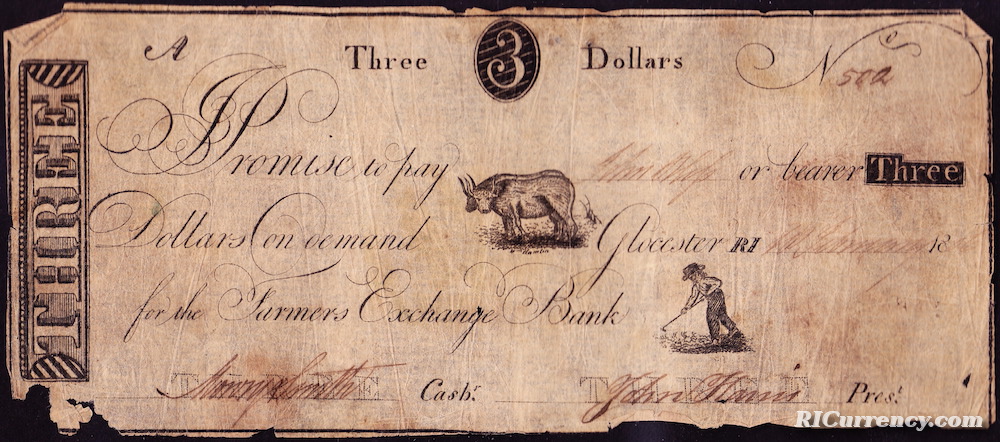


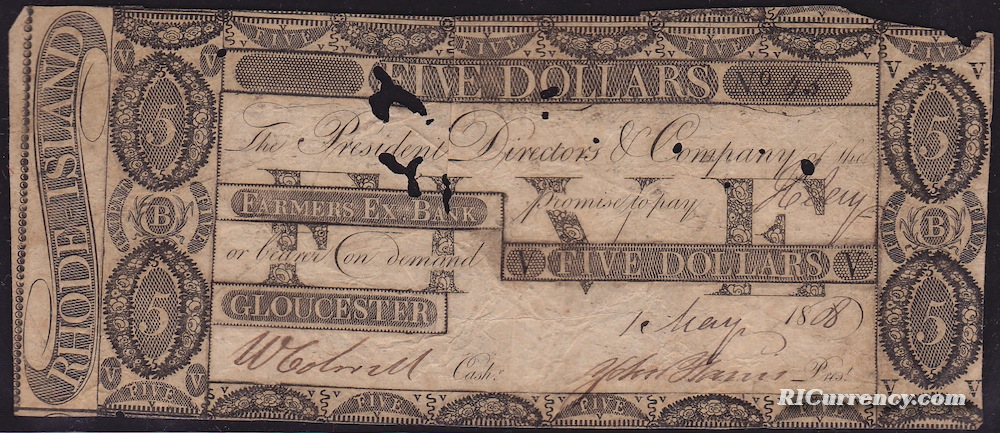

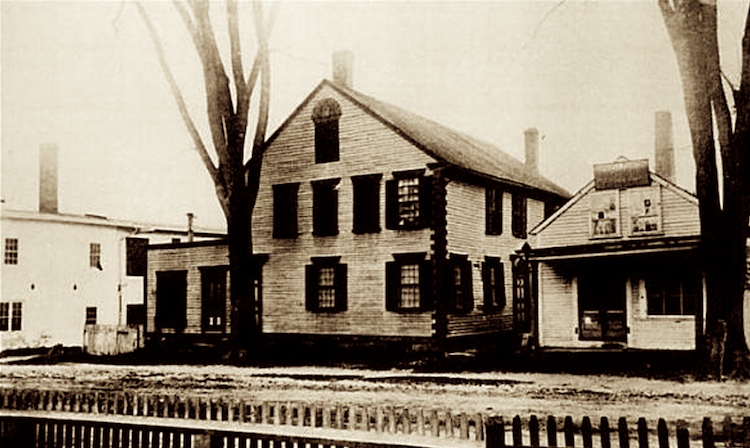
A 19th century photo of the Masonic Hall in Chepachet. Farmers Exchange occupied rooms on the first floor of this building.
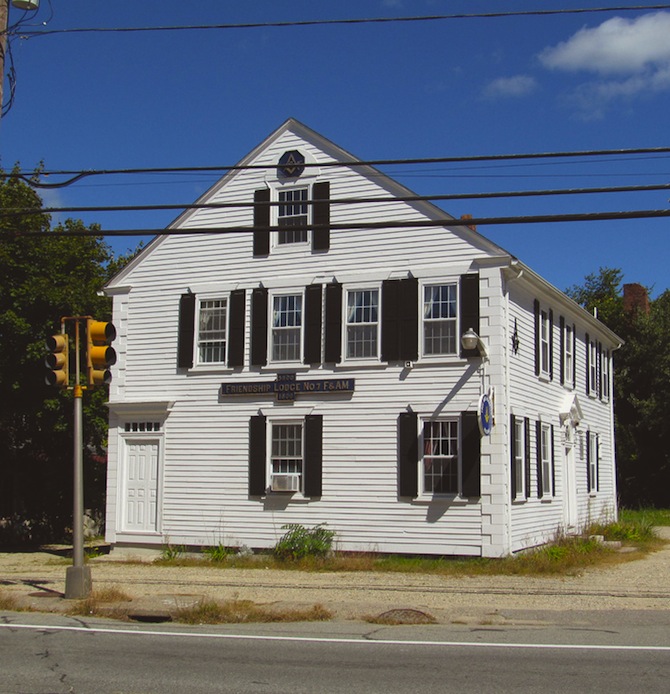
The bank’s former location still functions as a lodge today, known as Friendship Lodge #7 at 1167 Putnam Pike, Glocester.
